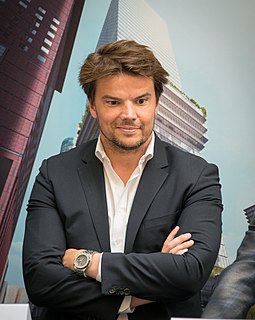A Quote by Robin Day
There's this very vulnerable planet of ours with finite resources. Architects and designers have, I think, a fair responsibility for conserving energy and materials, and making things durable.
Related Quotes
People need to realise that their governments are sitting on finite resources that will run out one day. Subsidising power and water is not an ideal solution and does not help reduce consumption. We need to educate people, from a young age, about the importance of conserving energy in their daily lives.
Recycling is more expensive for communities than it needs to be, partly because traditional recycling tries to force materials into more lifetimes than they are designed for - a complicated and messy conversion, and one that itself expends energy and resources. Very few objects of modern consumption were designed with recycling in mind. If the process is truly to save money and materials, products must be designed from the very beginning to be recycled or even "upcycled" - a term we use to describe the return to industrial systems of materials with improved, rather than degraded, quality.
When you learn to take responsibility for yourselves, then you will start taking responsibility for the planet. The planet is being destroyed by your abandonment of responsibility. You assume that you own the planet. And ownership confers upon you the right to do as you like. You do not own this beautiful planet. You are simply a guest here.
































